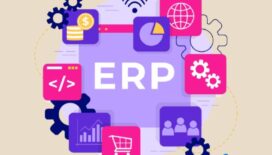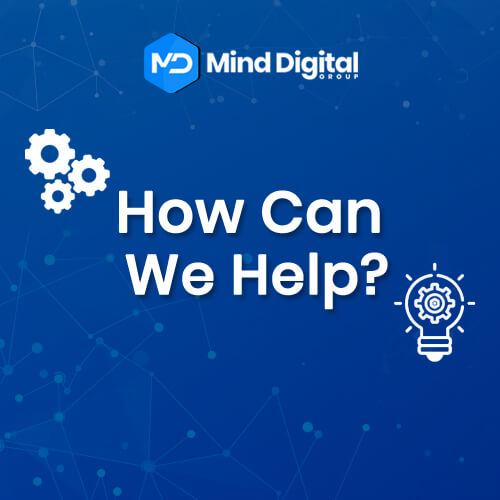
What is an E-commerce ERP & Does Your Business Need One?
Enterprise resource planning (ERP) has become an increasingly popular commerce solution for B2B organisations. Organisations looking forward to selling more efficiently and leaving a powerful impression on online business can proceed with ERP.
ERP ensures that different business management applications work together, allowing back-office functions, including product or catalogue management, Information Technology (IT) services, inventory software and warehouse/stock management.
This blog will cover details about ERP and the benefits it can provide to your business.
What is an E-commerce ERP?
An e-commerce ERP system is a software solution that integrates and manages various business processes within an e-commerce environment, including inventory management, order processing, customer relationship management and finance.
Combine back-office functions with front-end e-commerce operations to streamline data flow, automate tasks and improve overall efficiency. Here are some key details about ERP:
- These systems collect and store data from various departments, eliminating data duplication. Thus, it provides centralised data and makes it easy for you to manage data.
- Businesses have so much more than just one thing, so automate the repetitive tasks, save time and resources. Let your teams focus on more productive tasks and increase productivity.
- These systems offer various modules that can be tailored to a company’s specific needs, such as finance, accounting, project management, and human resources.
- Get real-time reporting because ERP provides access to real-time data, enables better decision making and makes it easier to manage tasks.
Moving ahead, understand why your business needs ERP.
Why Businesses Need ERP?
Businesses need ERP systems to streamline operations, make real-time decisions, gain real-time visibility and improve efficiency. By integrating various business processes into a single platform, ERP systems eliminate data duplication, automate tasks, and provide a centralised source of information. Here is more you need to know:
Enhanced Efficiency
You can automate routine tasks like order processing, inventory management, and financial accounting, freeing your teams to focus on more strategic initiatives. By integrating different departments and business functions, it reduces redundancies and improves workflow efficiency. Also, by centralising data and automating processes, it minimises human error and ensures data accuracy.
Real-time Decision Making
Decision making will now be no more torture or a hectic procedure. Get access to data, enabling businesses to make informed decisions quickly and accurately. Now identify trends, predict outcomes, and optimise operations because of the data analysis and reporting capabilities of ERP. It does help businesses optimise resource allocation, including inventory, personnel, and finances.
Increased Visibility
It is a centralised database that eliminates data duplication and ensures that all teams or departments have access to the same information. Promote better communication and collaboration between different departments and clients.
Now you can identify and reduce risks by getting better visibility into operations and processes. This centralised approach enables real-time tracking of various processes, from supply chain management to inventory and customer interactions.
Save Cost
You can streamline operations, reduce errors, and improve efficiency across various business functions. It can help you with cost savings through automation, real-time visibility, and integration of different business processes.
These systems help businesses reduce operational costs, eliminating data duplication, automating tasks, and optimising workflows. Your organisation can improve inventory management and enhance overall financial control.
Businesses can avoid stockouts and overstocking, which can lead to significant cost savings, with the help of real-time visibility into inventory levels. These systems can identify slow-moving and obsolete items, allowing businesses to take proactive measures to prevent waste and improve working capital.
Scalable and Flexible
These systems are designed to be scalable and flexible, allowing businesses to adapt to changing needs and growth. Features like modular design, cloud integration, and ongoing updates enable businesses to add or remove features, integrate with other systems, and scale resources as needed.
These systems are often built with modular components, allowing businesses to add or remove specific modules as needed, without requiring a complete system overhaul. Also, cloud-based ERP solutions offer on-demand resource scaling, allowing businesses to increase or decrease resources as needed without significant upfront costs or implementation time.
These systems are designed to handle an increasing number of users and complex transactions, ensuring that the system can support business growth. So, you can grow and increase productivity with ERP without getting duplicate data or human intervention.
Maybe you have been looking for these services that got you here, right? Why don’t you get help from e-commerce SEO services? The team will help you go through the process and implement everything according to your needs.
Conclusion
Enterprise resource planning (ERP) is an essential part of growing and developing for businesses these days. It helps get real-time analysis, decision making and automating repetitive tasks. It is designed to be scalable and flexible so that businesses can deal with upcoming challenges.
Follow us
Recent post
Popular post
- How To Call Batch Apex By Scheduler Class Within Salesforce
- What Is The Importance Of Google Algorithm Updates
- How To Create Dynamic Dependent Picklist Of Objects Within Salesforce
- What Is Wrapper Class & How To Use It In Salesforce
- How To Create Pagination Within Salesforce
- Tips For Hiring A Good Offshore Drupal Development Company
- Web Development Mistakes That Affect Your Online Reputation
- How To Integrate Google Maps Into Your Salesforce Software
- Check Your Link Building Strategy For 2014
- Tips For Selling Products Through Social Networking
- How To Create A Chart With Salesforce
- Benefits of Using India For Outsourcing & Offshore Development
- How To Integrate Salesforce With Facebook
- What Is Service Cloud Console In Salesforce & How To Enable It
- Superior Offshore Web Development At A Reasonable Cost
- How To Create Bucket Fields In Your Salesforce Reports
- 5 Things To Consider When Hiring A Drupal Developer
- Growth Of E-commerce Website Development
- Challenges In Hiring An Offshore Web Development Company
- 10 Tips When Creating Batch Apex In Salesforce
- What To Include & What To Exclude In SEO Plans
- How To Create An Opportunity Using A Visualforce Page In Salesforce
- Hire An Offshore Ruby On Rails Development Company Over A Freelancer
- Hire Drupal Developers Offshore To Increase Your Capabilities
- Effective SEO In A Post Panda Update – The Rules Have Changed
- Common Mistakes In Offshore Web Development
- What To Consider While Hiring A Dedicated Ruby On Rails Developer?
- Smart Phone & Tablet User Penetration
- Tips For Hiring A Good Offshore PHP Development Company
- Why Responsive Web Design Is Essential For Your Business
- How To Email Documents From Salesforce
- Website Development And Website Design Company India
- Why Work With An Offshore Development Company?
- How To Create Tab Panel In Salesforce
- How To Avoid 5 Common Off-Page SEO Mistakes
- The Multi-Billion Dollar Offshore Software Development Industry
- What Are The Advantages Of Digital Marketing Over Traditional Marketing?
- SEO & Conversational Keyword Search
- How To Avoid 5 Common On-Page SEO Mistakes
- How To Add Google Authorship And Its Benefits For Better SEO
- What’s Better For Facebook Ads: CPC Or CPM?
- Questions To Ask Your Potential Search Engine Optimization Partner
- How To Create Batch Apex In Salesforce
- Benefits Of Offshore PHP Development For Your Businesses
- Offshore Magento Development Means More Than Just Development Help
- Why You Should Consider Hiring Joomla Developers Offshore
- What To Look For When Hiring A Dedicated OpenCart Developer
- Stop Using Free Web Templates – Hire A Web Development Company
- How To Manage An Offshore Development Company?
- Hire Offshore Software Professionals To Help Your Business
- Offshore Development Is A Sensible Solution For Recessionary Times
- Why You Should Offshore Your Joomla Website Development
- 5 Tips To Help You Hire A Good Offshore PHP Development Company
- Reasons Why Salesforce CRM Customization Is Easy
- PHP Development – Turn Your Website Into A Multi-Featured Web Application
- 5 Things To Ask A Web Development Company Before Starting Work
- How A Multifaceted Web Development Company Can Help You?
- Take Advantage By Hiring A PHP Development Company From India
- Use Social Media Marketing To Improve Your Brand Identity
- Hiring Dedicated Developers From Offshore Development Companies
- See Measurable Results By Hiring Dedicated Ruby On Rails Developer
- Avoid 4 Common WordPress Development Mistakes
- Can “Developed By” Links Hurt Your SEO?
- How To Get All Salesforce Components In Force.com IDE
- The Manifold Advantages Of Working With An Offshore Web Development Company
- Web Development Company In India Defined
- Hire A Dedicated Drupal Developer To Develop A High Performance CMS
- Offshore Development – The Most Beneficial And Cost Effective Way To Outsource Your Business
- What To Look For When Hiring An Offshore Development Company
- Why Dedicated PHP Web Developers Are In Demand
- How To Avoid Some Common Mistakes When Working With An Offshore Web Development Company
- How To Choose An SEO Company
- Factors To Consider When Hiring Offshore Developers In India
- What To Look For When Hiring Dedicated Magento Developers
- Why Google Create Its Own Title Instead Of Using Yours
- 3 Challenges of Working with an Offshore Web Development Company
- Why Ruby On Rails Development Has Become Popular
- Why Hire A Web Development Company That Also Offers SEO
- 10 Tips And Tricks For Salesforce
- Are Back-links Losing Their Importance To Google Search Rankings
- The Significance Of A Salesforce Developer
- 4 Reasons to Hire A Web Development Agency Over A Freelancer
- Hire A PHP Developer- How Outsourcing Can Be A Key To Success
- Importance Of Strategic Digital Marketing For Business Growth
- Factors To Keep In Mind Before Hiring Dedicated Magento Developer
- Web Development India – For Prompt And Accurate Services
- Looking For An Offshore PHP Development Company, Where Do I Begin?
- 5 SEO Myths
- How To Choose A Company When Hiring Dedicated PHP Developers
- Why You Should Optimize For Local Search
- Hiring Offshore WordPress Developers Can Help Your Business
- How To Use Social Networking To Market Your Business
- Why Offshore Web Development To India Makes Business Sense
- 5 Factors To Consider When Hiring A Web Development Company
- Top Five Benefits Of Salesforce
- Benefits Of Hiring A Dedicated PHP Developer From India
- Using SEO & Social Media Together
- How Can An SEO Company Help Your Profile Online
- Strategic Importance Of Mobile SEO
- Choose The Social Media Network That Suits Your Business
Archives
- March 2026
- February 2026
- January 2026
- December 2025
- November 2025
- October 2025
- September 2025
- August 2025
- July 2025
- June 2025
- May 2025
- April 2025
- March 2025
- February 2025
- January 2025
- December 2024
- November 2024
- October 2024
- September 2024
- July 2024
- June 2024
- May 2024
- April 2024
- March 2024
- February 2024
- September 2023
- August 2023
- July 2023
- June 2022
- May 2022
- March 2022
- January 2022
- August 2021
- July 2021
- June 2021
- May 2021
- January 2021
- December 2020
- September 2020
- August 2020
- July 2020
- June 2020
- April 2020
- March 2020
- December 2019
- November 2019
- October 2019
- September 2019
- August 2019
- July 2019
- June 2019
- May 2019
- April 2019
- March 2019
- February 2019
- January 2019
- December 2018
- November 2018
- September 2018
- April 2018
- February 2018
- January 2018
- September 2017
- August 2017
- July 2017
- June 2017
- May 2017
- April 2017
- March 2017
- February 2017
- January 2017
- December 2016
- November 2016
- October 2016
- September 2016
- August 2016
- July 2016
- June 2016
- May 2016
- April 2016
- March 2016
- February 2016
- January 2016
- December 2015
- November 2015
- October 2015
- September 2015
- August 2015
- July 2015
- June 2015
- May 2015
- April 2015
- March 2015
- February 2015
- January 2015
- December 2014
















